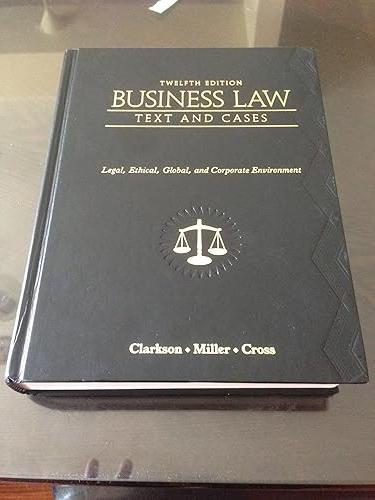On April 30, 2001, Dr. Mitchell borrowed $143,724 to purchase a house and the lot on which
Question:
On April 30, 2001, Dr. Mitchell borrowed
$143,724 to purchase a house and the lot on which it was located
* * * (the “Property”). [The loan]
* * * was secured by a mortgage on the Property. * * * The mortgage contained [a clause] providing for the acceleration of the amount secured and the sale of the property in the event of a default on the loan.
In 2006, Dr. Mitchell defaulted on her mortgage payments. On December 15, 2006, [the lending bank] commenced an executory proceeding * * * . The trial court ordered the issuance of a writ of seizure and sale.
On January 23, 2007, Dr.
Mitchell was served personally with the notice of seizure, which stated that a sheriff’s sale was tentatively scheduled for November 2, 2007.
Subsequently, * * * Dr. Mitchell and [the bank] entered into a [repayment agreement that postponed the seizure and sale of the property while the agreement was in place].
* * * Although Dr. Mitchell made a few (about two) payments, she was unable to comply with the payment terms of the repayment agreement.
On July 19, 2007, the trial court ordered that the original petition be amended and that an amended writ of seizure be issued. On September 7, 2007, the sheriff issued an amended notice of seizure. * * * The sheriff attempted to serve Dr. Mitchell at her residence on seven occasions.
Because the sheriff was unable to serve Dr. Mitchell, [the court appointed a receiver who] accepted service on Dr. Mitchell’s behalf.
On January 3, 2008, the Property was sold at a sheriff’s sale * * * .
* * * *
On April 11, 2008, Dr. Mitchell fi led a Petition to Annul Executory Proceedings and Judicial Sale, and for Damages for Wrongful Seizure [against Sheriff Paul Valteau, Jr., the lending bank, and others].
On November 18, 2008, [the bank] fi led a motion for summary judgment. Following a hearing, the trial court granted the motion and rendered judgment dismissing all the parties. [Dr. Mitchell appealed.]
* * * *
A creditor seeking to enforce a mortgage or privilege on property by executory process must fi le a petition praying for the seizure and sale of the property affected by the mortgage or privilege.
* * * In this case, [the bank] fi led a petition for executor process and attached thereto authentic evidence satisfying all three requirements for obtaining an order of seizure and sale: a copy of the note, mortgage agreement, and a certifi ed copy of the assignment of the mortgage note to it. * * * It is undisputed that Dr. Mitchell was served with the initial notice of seizure. Dr. Mitchell, however, contends that the sheriff also was required to serve her with the amended notice of seizure from which her property was seized and sold. [Emphasis added.]
Resolution of the issue of whether service of the amended notice of seizure was required turns on construction of several * * *
statutory provisions. La. C.C.P. Art.
[Louisiana Code of Civil Procedure Article] 2721 provides that the sheriff must serve upon the defendant “a written notice of the seizure of the property. [“] La. C.C.P. Art.
2293(B) also provides that the sheriff shall serve “a notice of seizure.”
* * * *
Construing La. R.S. [Louisiana Revised Statutes] 13:3852 and La.
C.C.P. Art. 2293(B) * * * [a prior court] rejected a debtor’s argument that she was entitled to a second notice of seizure when the fi rst sale was delayed.
* * * [There,] the court * * *
reasoned that the debtor had defaulted under the terms of the mortgage and that the creditor had validly exercised its right to have the property seized and sold in accord with the executor process provisions. * * * The court further reasoned that read together La. C.C.P. Art 2293(B)—which requires service of “a written notice of seizure of the property”—and La. R.S. 13:3852—which requires [that] the notice include “the date of the fi rst scheduled sale of the property”—mandate that “upon seizure of their property, a defendant receive a written notice that informs them of the fi rst scheduled sale date.” * * * The court still further reasoned that there was no Louisiana authority for requiring a creditor to provide a debtor with notice of a rescheduled judicial sale.
The situation in this case is analogous to the situation presented in the [referenced] case. Dr. Mitchell defaulted on her loan agreement and [the bank] established its right to proceed by executory process to seize and sell the Property. Dr. Mitchell was served with a notice of seizure.
Thereafter, she entered into the repayment agreement, [which] expressly provided that the executor proceeding would be placed on hold for the time the repayment agreement was in place. The agreement also provided for the resumption of the foreclosure in the event of a default in its terms, which Dr. Mitchell acknowledged occurred. When the executory proceeding was resumed, there was no obligation to serve Dr. Mitchell with another notice of seizure.
* * * We thus fi nd the trial court correctly concluded that there was no requirement that Dr. Mitchell be served with the amended notice of seizure.
Questions:-
1. What are the purposes of the notice provisions in the Louisiana code? Did this court stay true to those purposes?
Explain your answer.
2. How might the lender have avoided the dispute in this case?
Step by Step Answer:

Business Law Text And Cases Legal Ethical Global And Corporate Environment
ISBN: 9780538470827
12th Edition
Authors: Kenneth W. Clarkson, Roger LeRoy Miller, Frank B. Cross





